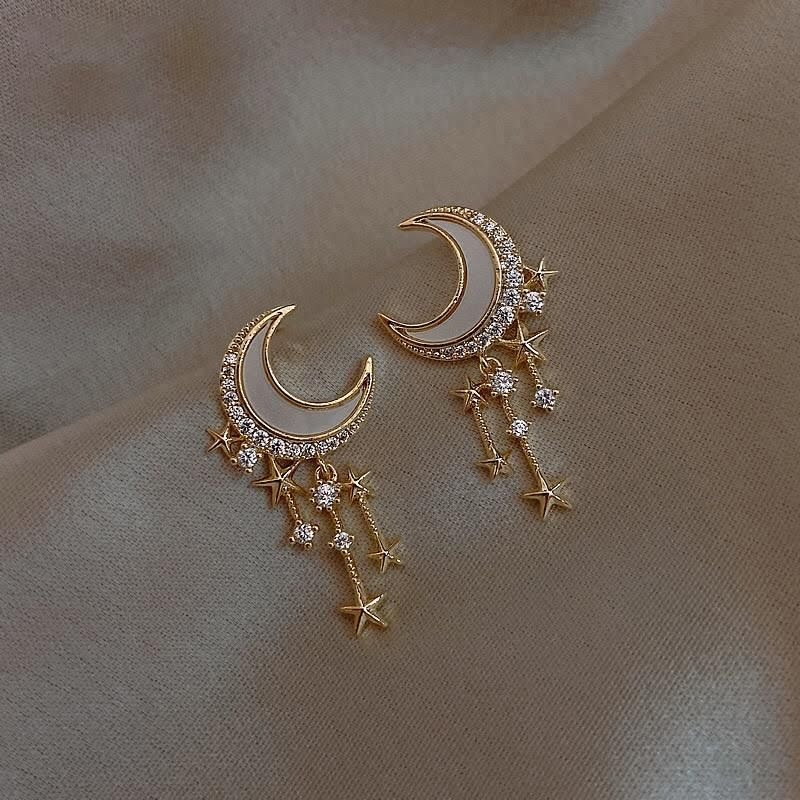Jewelry is a treasured possession for many, and keeping it clean and well-maintained is essential to preserve its beauty and longevity. Jewelry cleaner plays a crucial role in achieving this goal, as it effectively removes dirt, oils, and tarnish from various types of jewelry. In this article, we will explore the importance of regularly cleaning your jewelry and delve into the benefits of using homemade jewelry cleaners.
Regularly cleaning your jewelry is more than just an aesthetic choice; it is vital for maintaining its value and durability. Over time, everyday wear can leave behind residue that dulls the shine of precious metals such as gold and silver. Additionally, exposure to chemicals like lotions or perfumes can cause discoloration or even damage gemstones. By incorporating regular cleaning into your jewelry care routine, you can prevent these issues and maintain the brilliance and luster of your pieces.
Apart from preserving the appearance of your jewelry, there are various benefits to using homemade jewelry cleaners. Firstly, they are cost-effective alternatives to store-bought cleaners that often contain harsh chemicals. By utilizing common household ingredients, you can create effective yet gentle solutions that are safe to use on a wide range of jewelry types. Additionally, homemade cleaners offer customization options where you can adjust the ingredients to match specific needs or preferences.
In the following sections of this article, we will explore different DIY recipes using easily accessible ingredients such as vinegar, baking soda, lemon juice, salt, ammonia, and dish soap. These recipes will provide step-by-step instructions on making homemade jewelry cleaners that are both effective and gentle on your precious pieces. We will also discuss alternative natural cleaning methods for those who prefer different options.
Whether you want to bring back the sparkle to your favorite necklace or keep your engagement ring looking radiant year after year, learning how to make your own jewelry cleaner is an invaluable skill. So gather your ingredients and let’s dive into the world of homemade jewelry cleaners that will rejuvenate your cherished pieces.
Common Household Ingredients for Making Jewelry Cleaner
| Common Household Ingredients | How They Help Clean Jewelry |
|---|---|
| Vinegar | Acetic acid in vinegar helps dissolve dirt and grime on jewelry surfaces |
| Baking Soda | Abrasive nature of baking soda aids in removing tarnish and buildup on jewelry |
| Lemon Juice | Natural acids in lemon juice help break down stains and restore shine to jewelry |
When it comes to making your own homemade jewelry cleaner, you might be surprised at the common household ingredients that can effectively clean your precious pieces. These ingredients are readily available in most kitchens or households, making it convenient to whip up a batch of cleaner whenever needed. Not only are these homemade cleaners easy to make, but they can also be more gentle on your delicate jewelry compared to store-bought cleaners that may contain harsh chemicals.
One key ingredient commonly used in homemade jewelry cleaners is vinegar. Vinegar, specifically white distilled vinegar, is known for its cleaning properties due to its acetic acid content. Acetic acid helps dissolve dirt and grime that accumulate on jewelry surfaces over time. Baking soda is another popular ingredient found in many DIY jewelry cleaner recipes. Its abrasive nature makes it effective at removing tarnish and buildup from metal jewelry without causing damage or scratches.
Another household ingredient that can make an excellent addition to your homemade jewelry cleaner is lemon juice. The natural acids present in lemon juice can help break down stains and restore the shine of your favorite pieces. This citrus fruit is particularly useful for brightening up dull silver or gold jewelry.
The combination of lemon juice and salt is often used in homemade cleaners for its powerful cleaning properties. Salt acts as a mild abrasive, enhancing the cleaning action of the lemon juice.
By utilizing these common household ingredients, you can create effective and affordable jewelry cleaners that are gentle on your precious pieces. Experiment with different combinations to find the best cleaner for your specific jewelry types and needs.
DIY Recipe #1
Vinegar and baking soda are two common household ingredients that can be used to create an effective jewelry cleaner. Not only are these ingredients readily available in most kitchens, but they also have natural cleaning properties that can help remove dirt, grime, and tarnish from jewelry.
To make a vinegar and baking soda jewelry cleaner, start by mixing equal parts white vinegar and warm water in a small bowl or container. You can use distilled white vinegar for best results. Next, add a tablespoon of baking soda to the mixture and stir until the baking soda has dissolved.
Once the solution is ready, you can place your jewelry into the mixture and let it soak for about 10 to 15 minutes. Be sure to fully submerge each piece of jewelry in the solution to ensure thorough cleaning. After soaking, gently scrub the jewelry with a soft toothbrush or cloth to remove any remaining dirt or residue. Rinse the jewelry under running water to remove any leftover cleaning solution and pat dry with a clean cloth.
It’s important to note that while vinegar and baking soda can effectively clean most types of jewelry such as gold or silver, they may not be suitable for all materials. Avoid using this cleaner on delicate gemstones, pearls, or costume jewelry, as it may cause damage or discoloration. It’s always best to conduct a patch test on a small area of the jewelry before using this cleaner on the entire piece.
| Ingredients | Instructions |
|---|---|
| Equal parts white vinegar and warm water | Mix together in a small bowl or container |
| 1 tablespoon of baking soda | Add to the vinegar and water mixture, stir until dissolved |
| Jewelry pieces | Submerge in the mixture and let soak for 10-15 minutes. Gently scrub with a toothbrush or cloth. Rinse under running water and pat dry. |
DIY Recipe #2
Step-by-step instructions on making a lemon juice and salt jewelry cleaner
To make a homemade jewelry cleaner using lemon juice and salt, you will need the following ingredients:
- 1 tablespoon of lemon juice (freshly squeezed is ideal).
- 1 teaspoon of salt.
- A small bowl or container for mixing.
- Soft cloth or brush for cleaning.
Here’s how to make the lemon juice and salt jewelry cleaner:
- Pour the lemon juice into the small bowl or container.
- Add the salt to the lemon juice and stir until it dissolves completely.
- If you prefer a thicker paste consistency, you can add more salt as desired.
- Place your jewelry items into the mixture and let them soak for about 5 minutes.
- Gently scrub each piece of jewelry with a soft cloth or brush to remove any dirt or tarnish.
- Rinse well under running water to remove any residue from the cleaner.
- Dry thoroughly with a clean cloth before storing or wearing your newly cleaned jewelry.
Advantages of using lemon juice for cleaning jewelry
Lemon juice is an excellent ingredient for cleaning jewelry due to its natural acidity and mild abrasive properties. Here are some advantages of using lemon juice as a cleaning agent:
- Natural Cleansing Power: Lemon juice contains citric acid, which acts as a natural cleanser that can break down grime, dirt, and even light tarnish on metal surfaces.
- Gentle on Jewelry: Unlike harsh chemical cleaners, lemon juice is relatively gentle on most types of jewelry materials, including gold, silver, and gemstones.
- Safe Option: Lemon juice is non-toxic and environmentally friendly, making it a safer alternative to commercial cleaners that may contain harmful chemicals.
It’s important to note that while lemon juice works well for many types of jewelry, it may not be suitable for delicate or porous gemstones, such as pearls or opals. Always exercise caution and research specific cleaning recommendations for your particular pieces before using any homemade cleaner.
Tips on safely using this cleaner on different types of jewelry
When using the lemon juice and salt jewelry cleaner, keep the following tips in mind to ensure safe and effective cleaning:
- Avoid Over-Scrubbing: While lemon juice is generally safe for many jewelry materials, excessive scrubbing can cause damage to delicate surfaces. Use a gentle touch when cleaning and allow the acidic nature of the lemon juice to do most of the work.
- Test on a Small Area: Before immersing your entire piece of jewelry in the cleaner, test it on a small, inconspicuous area first to check for any adverse reactions or discoloration.
- Avoid Gemstones with Porous Surfaces: Avoid using this cleaner on gemstones with porous surfaces like pearls or opals, as lemon juice may penetrate these materials and cause damage over time.
- Rinse Thoroughly: After cleaning your jewelry with lemon juice and salt mixture, make sure to rinse it thoroughly under running water to remove any residue from the cleaner. Leftover residue can potentially lead to discoloration or dullness.
By following these tips, you can effectively clean your jewelry using the homemade lemon juice and salt cleaner while minimizing the risk of damage to your precious pieces.
DIY Recipe #3
One popular homemade jewelry cleaner recipe is made using a combination of ammonia and dish soap. This powerful combination helps to effectively remove dirt, oils, and tarnish from your precious jewelry pieces. Here are the step-by-step instructions for making this DIY cleaner:
- Start by preparing a cleaning solution by mixing equal parts of ammonia and dish soap in a bowl. For example, you can use 1 tablespoon of each ingredient.
- Add warm water to the mixture to dilute it. Use enough water to fully submerge your jewelry pieces for cleaning.
- Gently stir the mixture until the dish soap and ammonia blend together.
- Place your tarnished or dirty jewelry pieces into the solution and let them soak for about 15-20 minutes.
- After soaking, use a soft-bristled toothbrush or a jewelry cleaning brush to scrub away any remaining grime or residue. Be gentle while scrubbing to avoid scratching delicate pieces.
- Rinse your jewelry thoroughly under warm running water to remove any remaining cleaner.
- Dry your jewelry with a clean, soft cloth or leave them on a towel to air dry completely before storing or wearing them again.
It’s important to note that not all types of jewelry can safely withstand the use of ammonia. Avoid using this cleaner on porous gemstones like opals or pearls as it may damage their surface. Additionally, certain metals such as sterling silver may develop a patina over time with repeated exposure to ammonia. Therefore, it’s always recommended to perform a spot test on an inconspicuous area of your jewelry piece before attempting a full cleaning.
To ensure your safety when working with ammonia, it is crucial to take some precautions. Always use gloves and work in a well-ventilated area to avoid inhaling fumes. Avoid mixing ammonia with bleach or other cleaning agents, as this can produce harmful gases. Additionally, keep ammonia out of reach of children and pets.
By following these steps and taking necessary precautions, you can effectively clean your jewelry using the ammonia and dish soap cleaner. Remember to treat each piece with care and perform regular maintenance to keep your jewelry looking its best for years to come.
Other Natural Cleaning Methods for Jewelry
Using Toothpaste to Clean Jewelry
One common household item that can be used as a natural jewelry cleaner is toothpaste. Toothpaste contains mild abrasives that can help remove dirt and grime from your jewelry. To use toothpaste as a jewelry cleaner, simply apply a small amount of toothpaste onto a soft-bristle toothbrush or cloth. Gently scrub your jewelry, paying extra attention to hard-to-reach areas. Rinse the jewelry thoroughly with warm water and dry with a soft cloth.
While toothpaste can be effective for cleaning some types of jewelry, it is important to note that it may not be suitable for all pieces. Avoid using toothpaste on delicate or porous gemstones, such as pearls or opals, as the abrasive nature of the paste can cause scratching or damage. Additionally, it is recommended to test the toothpaste on a small, inconspicuous area of your jewelry before applying it to the entire piece to ensure there are no adverse reactions.
Using Club Soda to Clean Jewelry
Another natural cleaning method for jewelry is using club soda. Club soda is an excellent choice for removing tarnish and bringing back the shine to your metal jewelry. Simply soak your tarnished jewelry in a bowl filled with club soda for about 15 minutes. After soaking, gently scrub the jewelry with a soft brush or cloth to remove any remaining dirt or tarnish. Rinse the jewelry under running water and pat dry with a soft cloth.
Club soda works particularly well on silver or sterling silver jewelry, helping to bring back its original luster without causing any damage. However, it is important to avoid prolonged exposure of certain gemstones like turquoise or coral in club soda, as they can be porous and susceptible to damage from liquids.
Using Beer to Clean Jewelry
Believe it or not, beer can also act as a natural jewelry cleaner. The acid in beer helps to dissolve dirt and remove tarnish from metal jewelry. To use beer as a jewelry cleaner, pour a small amount of beer into a bowl and let your jewelry soak for a few minutes. Remove the jewelry from the beer and gently scrub using a soft brush or cloth. Rinse the jewelry with warm water and pat dry.
While beer can serve as an effective cleaning agent for some types of metal jewelry, it is important to exercise caution when using it on certain pieces. Avoid using beer on fragile or porous gemstones, as the alcohol content may cause damage. It is always advisable to test a small area of your jewelry before applying beer to the entire piece.
By exploring these alternative natural cleaning methods, you can find the right solution for your specific type of jewelry while avoiding harsh chemicals or expensive store-bought cleaners. Remember to always handle your precious treasures with care and consult with professionals when in doubt about cleaning methods suitable for delicate or valuable pieces.
Tips for Cleaning Specific Types of Jewelry
Cleaning jewelry requires different approaches depending on the type of metal, gemstones, or materials used. Here are some helpful tips for cleaning specific types of jewelry to keep them looking their best:
- Gold Jewelry: To clean gold jewelry, create a solution using mild dish soap and warm water. Soak the gold pieces in the solution for a few minutes, then gently scrub with a soft-bristle brush. Rinse thoroughly and pat dry with a clean cloth. Avoid using harsh chemicals or abrasive materials as they can damage the gold.
- Sterling Silver Jewelry: Sterling silver can tarnish over time due to exposure to air and moisture. To remove tarnish, create a paste by mixing equal parts baking soda and water. Apply the paste to a soft cloth or toothbrush and gently rub it onto the silver surface, focusing on the tarnished areas. Rinse well and dry thoroughly to prevent water spots.
- Gemstone Jewelry: When cleaning gemstone jewelry, it is important to choose a method that will not damage or dull the stones’ natural brilliance. One gentle approach is to create a mixture of warm water and mild dish soap. Soak the piece for a few minutes before carefully scrubbing with a soft brush or cloth. Be cautious with porous gemstones like pearls or opals; avoid submerging them in water and instead use a damp cloth for cleaning.
- Costume Jewelry: Costume jewelry often contains non-precious metals and materials that may react poorly to traditional cleaning methods or solutions. Instead, try using lukewarm water mixed with a small amount of gentle shampoo or dish soap. Gently wipe down each piece using a soft cloth, being careful not to rub too hard on any delicate embellishments.
- Delicate or Valuable Pieces: For delicate or valuable jewelry pieces such as heirlooms or fine jewelry with intricate settings, consider taking them to a professional jeweler for cleaning. They have the necessary tools and expertise to clean and handle these pieces safely, ensuring they retain their value and beauty.
Remember, even with these specific tips, it is important to always read and follow any care instructions provided by the jewelry’s manufacturer. By taking proper care of your jewelry and using the appropriate cleaning methods, you can keep them looking beautiful for years to come.
Proper Maintenance and Storage of Cleaned Jewelry
Proper maintenance and storage of cleaned jewelry is essential for extending the longevity and maintaining the sparkle of your precious pieces. Once you have effectively cleaned your jewelry using homemade cleaners, it is important to follow these tips to ensure that it stays in excellent condition.
To maintain the cleanliness and shine of your jewelry after cleaning, it is crucial to handle it with care. Avoid touching the surfaces with your fingers as the natural oils from your skin can transfer onto the jewelry, leaving smudges or fingerprints. Instead, use a soft, lint-free cloth to gently buff the jewelry and remove any remaining residues.
Storing your cleaned jewelry properly is key to preventing tarnishing and damage. One of the best ways to store jewelry is by keeping each piece separate from others. This can be done by using individual compartments in a jewelry box or by wrapping each piece in a soft cloth or tissue paper before placing them together in a pouch or box.
It is also important to keep your jewelry away from excessive heat, humidity, and direct sunlight. Exposure to these elements can cause oxidation, discoloration, and even damage gemstones or delicate materials. Therefore, storing your jewelry in a cool and dry place such as a drawer or a dedicated jewelry box will help preserve its quality for years to come.
By following these proper maintenance and storage practices, you can enjoy wearing sparkling and well-preserved jewelry that will continue to enhance your style while retaining its value over time. Taking good care of your cleaned jewelry not only ensures its longevity but also allows you to fully appreciate the beauty and brilliance of each piece whenever you wear them.
So go ahead and try these homemade cleaners along with these maintenance and storage tips for a collection of dazzling accessories that will always stand out.
Conclusion
In conclusion, making homemade jewelry cleaners is a great way to keep your precious pieces sparkling and looking their best. Regularly cleaning your jewelry is essential for maintaining its shine and preventing tarnish or damage. Using common household ingredients, such as vinegar, baking soda, lemon juice, salt, and dish soap, you can create effective cleaning solutions that are safe to use on most types of jewelry.
One of the main advantages of homemade jewelry cleaners is that they are cost-effective and environmentally friendly. By using ingredients that you already have in your kitchen or household, you can avoid the need for harsh chemicals or expensive commercial cleaners. Additionally, these homemade cleaners are gentle on your jewelry while still providing effective cleaning power.
When using homemade jewelry cleaners, it’s important to follow the instructions carefully and take precautions when necessary. Certain types of jewelry may be more delicate or require specific care instructions. For example, be cautious when using vinegar and baking soda cleaner on pearls or soft gemstones. Always test a small area first to ensure compatibility with your jewelry.
Frequently Asked Questions
What can I use to make jewelry cleaner?
There are several household ingredients that can be used to make jewelry cleaner. One commonly used option is a mixture of dish soap and warm water. By combining a few drops of mild dish soap with warm water, you can create a gentle cleaning solution for your jewelry. Another popular choice is using baking soda mixed with water to form a paste.
The slightly abrasive nature of the baking soda helps in removing dirt and grime from jewelry pieces. Lemon juice mixed with water is also an effective natural jewelry cleaner due to its acidic properties. Additionally, there are commercial jewelry cleaning solutions available that you can purchase at stores or online.
What is the main ingredient in jewelry cleaner?
The main ingredient in many commercial jewelry cleaners is ammonia, especially for products designed to clean silver jewelry. Ammonia helps dissolve dirt and tarnish on metal surfaces without causing damage or scratching.
It is important to follow the instructions carefully when using ammonia-based cleaners as they may require proper ventilation due to the fumes it releases. Other substances found in commercial jewelry cleaners may include surfactants, which help break down oils and dirt, as well as buffering agents to maintain the pH balance of the solution.
Does vinegar clean jewelry?
Yes, vinegar can be used as a natural cleaner for certain types of jewelry; however, it may not work well on all metals or gemstones due to its acidic nature. Vinegar can safely clean gold and silver jewelry by creating a simple cleaning solution: mix equal parts white vinegar and warm water together. Soak the jewelry in this mixture for 15-20 minutes, then gently scrub it with a soft brush or cloth to remove any dirt or tarnish.
Afterward, rinse the piece thoroughly with water and dry it completely before storing or wearing it again. However, avoid using vinegar on delicate stones like pearls or opals, as well as any plated or costume jewelry that could be damaged by its acidic properties.

Welcome to my jewelry blog! My name is Sarah and I am the owner of this blog.
I love making jewelry and sharing my creations with others.
So whether you’re someone who loves wearing jewelry yourself or simply enjoys learning about it, be sure to check out my blog for insightful posts on everything related to this exciting topic!





